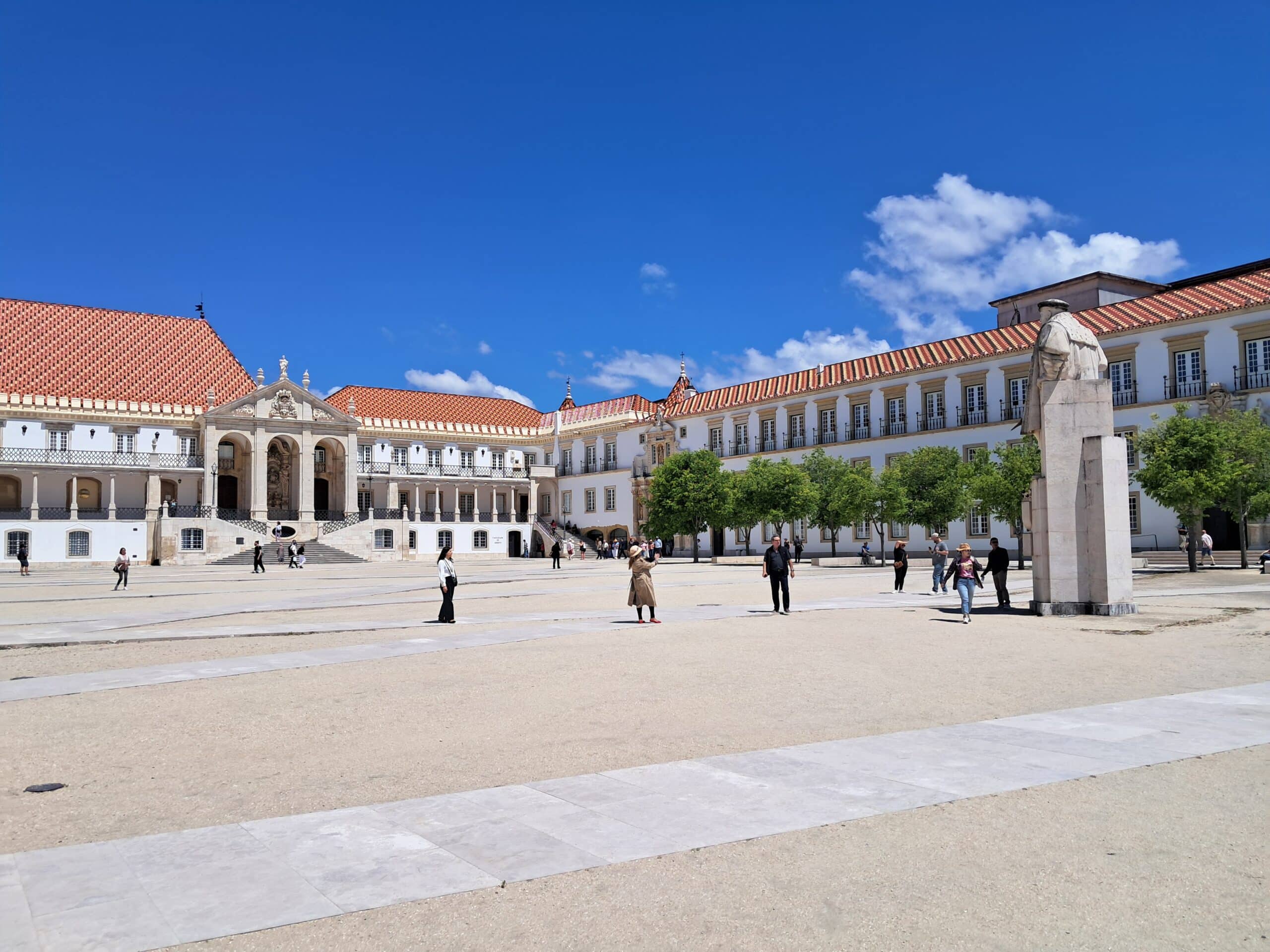Franco-Portuguese Symposium “Bienvenue en France”: Enhancing the Integration of International Students

In this page:
- A Meaningful Experience of Exchange
- Key Themes
- A Distinctive Pedagogical Model
- International Outreach
From May 15 to 17, 2025, Philippe Duperray, International Relations Officer for the South-West Region, participated in the Franco-Portuguese symposium “Bienvenue en France”. The event was hosted successively at Nova School of Business & Economics in Lisbon and the University of Coimbra, founded in 1290 and listed in the Times Higher Education global rankings. Coordinated by Campus France and Portuguese partners, the symposium brought together French and Portuguese higher education institutions to exchange about the reception and integration of international students.
A Meaningful Experience of Exchange
What were your overall impressions of the Franco-Portuguese symposium?
It was an extremely valuable experience, marked by meaningful dialogue and mutual learning. The peer-to-peer format encouraged open and constructive conversations among participants. The sessions provided an opportunity to share best practices for welcoming international students in a spirit of cooperation and active listening.
How did this event stand out from other international meetings you’ve attended?
What made this symposium particularly distinctive was the diversity of participating institutions, the high quality of presentations, and the close professional ties established among attendees. We engaged with prestigious French institutions such as École Polytechnique, HEC, Institut Mines-Télécom (IMT), the University of Reims, and the University of Toulouse, as well as Portuguese partners including the University of Coimbra, the Lisbon Higher Institute of Technology (ISTL), and the Polytechnic Institute of Lisbon (IPL).
This mix of grandes écoles, public universities, and private schools from both countries allowed for a cross-fertilization of perspectives and experiences.
Key Themes
What were, in your view, the major trends or key topics discussed over the three days ?
Three main themes structured the discussions :
- The professional integration of international students, a central issue for all institutions ;
- Welcoming refugee students, with inspiring feedback on the implementation of dedicated measures (special diplomas, adapted classes) ;
- Communication and information aimed at international students, an essential lever to help them succeed.
A Distinctive Pedagogical Model
What topic did you speak about at the symposium ?
I had the opportunity to speak in Lisbon during a session dedicated to the professional integration of international students and the role of alumni networks (Professional Integration of International Students and Alumni Network). I presented how the active pedagogies implemented at CESI, as well as some specific educational modules, support effective professional integration of our international students. This approach, focused on developing individual projects and working in a company-like environment, sparked real interest among participants.
The session continued as a roundtable discussion, co-moderated with my colleagues from the Léonard de Vinci School of Engineering, allowing each university representative, French or Portuguese, to share best practices.These exchanges revealed numerous similarities in our support strategies and the distinctive strengths of CESI’s educational model.
How do CESI’s active pedagogies address the challenges of integrating international students?
They create a professional learning environment where students can develop both technical and soft skills, all while receiving individual support. This prepares them for the expectations of French companies and facilitates their cultural and professional adaptation. Our active pedagogical approach is a cornerstone of the CESI student experience.
International Outreach
Which cooperation opportunities did you initiate or strengthen with Portuguese and international partners?
One of the most valuable aspects of attending international events is the opportunity to forge and strengthen academic collaborations. I was able to establish meaningful contacts with the Lisbon Higher Institute of Technology and the Lisbon Polytechnic Institute, and promising conversations have already begun with both institutions.
Interestingly, just days after our visit to Coimbra, we signed a bilateral Erasmus Without Paper agreement with the University of Coimbra, enabling student exchanges for academic semesters. Meeting the Head of International Relations in person added a personal dimension that helped solidify the foundation of this new partnership.
These events also strengthen ties with other French institutions. For example, discussions were initiated with the University of Reims regarding the BRAFITEC program. Naturally, engaging with representatives from top institutions such as École Polytechnique and Télécom Paris was both stimulating and enriching.